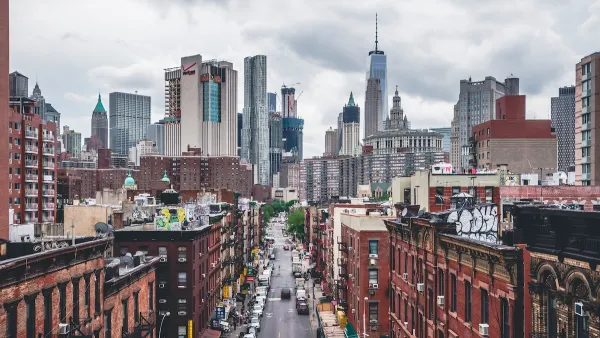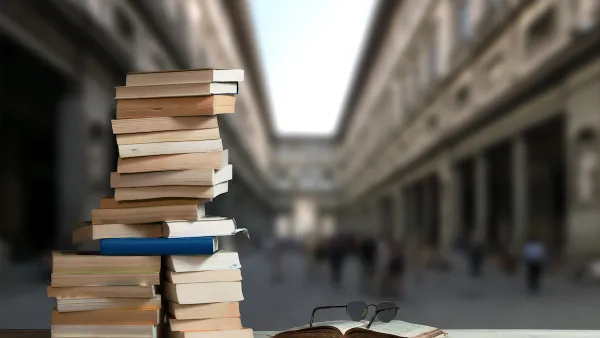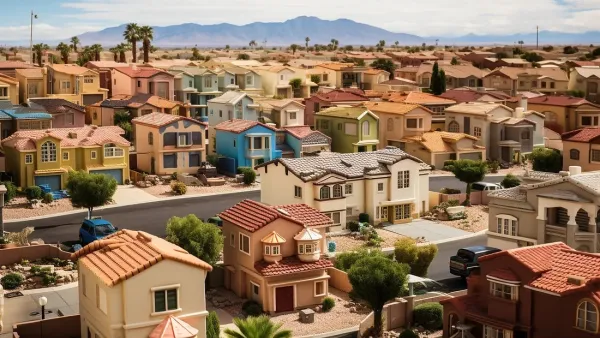One of the perks of my job is getting to know new cities and neighborhoods. We research, create a lot of graphics and talk with a lot of people. In the course of those discussions, while people often exhibit pride in where they live, there is also an underlying concern that frequently goes something like this: “We feel like a last place team – the one that can never get out of the cellar.” “There is a real self-image problem here.” “You can’t do that in [insert name of place here] because we
One of the perks of my job is getting to know new cities and neighborhoods. We research, create a lot of graphics and talk with a lot of people. In the course of those discussions, while people often exhibit pride in where they live, there is also an underlying concern that frequently goes something like this:
- "We feel like a last place team – the one that can never get out of the cellar."
- "There is a real self-image problem here."
- "You can't do that in [insert name of place here] because we're different than other places."
- "There's a community inferiority complex here."
- "Too many people see what's wrong and not what's right."
Sound familiar? It seems many places are afflicted with a lack of self esteem. It's hard to measure that kind of problem. Even harder to point a finger at a solution. If you're an individual and have some self doubt, maybe you would consider picking up a self-help book. Or perhaps therapy? Is there such a thing as urban therapy? I suspect a few places would schedule regular visits.
The self-help craze offers some typical solutions to fixing self esteem: "change negative thoughts to positive ones," "reinforce a positive self-image," etc. I chuckle when I see these kinds of statements as I'm often reminded of Stuart Smalley. For those reading this that are too young and / or believe that Saturday Night Live started with Will Ferrell, please consult the web. Stuart Smalley's daily affirmation – "I'm Good Enough, I'm Smart Enough, and Doggone It, People Like Me!" was always delivered with such transparent disbelief that it became a popular way to criticize the quick, self-help, fix.
But given the popularity of this stuff, maybe we should take a quick moment to find some inspiration from self-help guidebooks. So I did a quick Google search to see what's being peddled nowadays. I even added the word "cities" to see what would come up. Alas nothing but in the course of that procrastination Google I found some sites with the germ of a few potentially valuable ideas. The emphasis on "taking care of yourself" for instance often refers to improved physical health. Today, exercise and nutrition are increasingly discussed as an urban planning problem but I hadn't thought of them as also a boost to urban self-esteem. Perhaps feeding the mind of the individual will bubble up to the scale of the community if enough people are involved. Take other typical self-help ideas - "make your meals a special time" made me think of the well-organized community dinners and roving block parties some cities support. I also personally like the idea of a "celebratory scrapbook" that could be created by neighborhoods as sort of a window into their values and successes.
Then there is the "mutual complimenting exercise" or self-affirming lists that Stuart Smalley loves. As odd as it sounds, I think there's some value in this at the community level. In past planning projects when we've asked people to define their successes as a community and not focus on the problems, we're often presented with a lengthy and robust list. People are indeed quite proud of their neighborhoods. They just need excuses to talk positvely about them which is in part what a plan can help facilitate.
Of course none of these, what I would call additive measures, replaces a real physical and economic transformation - the kind that comes with sustained and smart investment. But they might help set the stage to make that investment a little easier to come by.
Or maybe cities just need the real quick fix – a winning sports team. I laughed out loud this morning when I heard the following on NPR – "I'm so excited!!! Philadelphia finally won something." Is Stuart Smalley a Phillies fan?

Analysis: Cybertruck Fatality Rate Far Exceeds That of Ford Pinto
The Tesla Cybertruck was recalled seven times last year.

National Parks Layoffs Will Cause Communities to Lose Billions
Thousands of essential park workers were laid off this week, just before the busy spring break season.

Retro-silient?: America’s First “Eco-burb,” The Woodlands Turns 50
A master-planned community north of Houston offers lessons on green infrastructure and resilient design, but falls short of its founder’s lofty affordability and walkability goals.

Test News Post 1
This is a summary

Analysis: Cybertruck Fatality Rate Far Exceeds That of Ford Pinto
The Tesla Cybertruck was recalled seven times last year.

Test News Headline 46
Test for the image on the front page.
Urban Design for Planners 1: Software Tools
This six-course series explores essential urban design concepts using open source software and equips planners with the tools they need to participate fully in the urban design process.
Planning for Universal Design
Learn the tools for implementing Universal Design in planning regulations.
EMC Planning Group, Inc.
Planetizen
Planetizen
Mpact (formerly Rail~Volution)
Great Falls Development Authority, Inc.
HUDs Office of Policy Development and Research
NYU Wagner Graduate School of Public Service





























